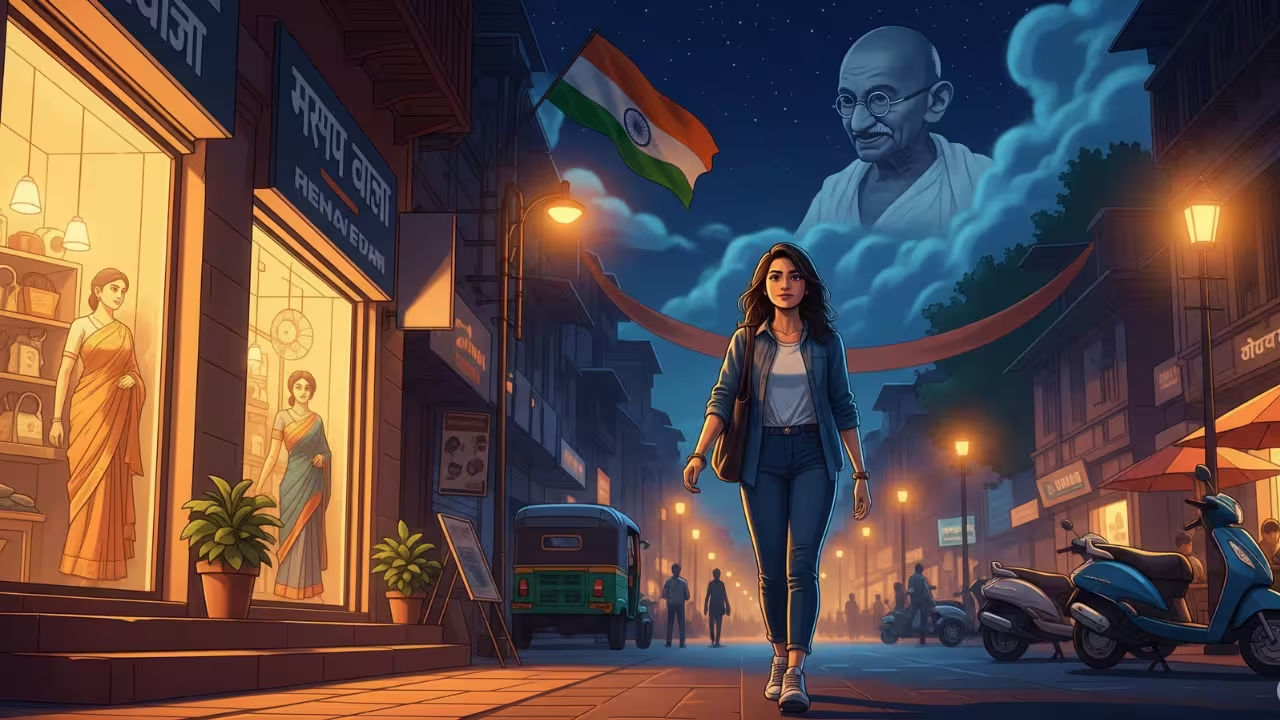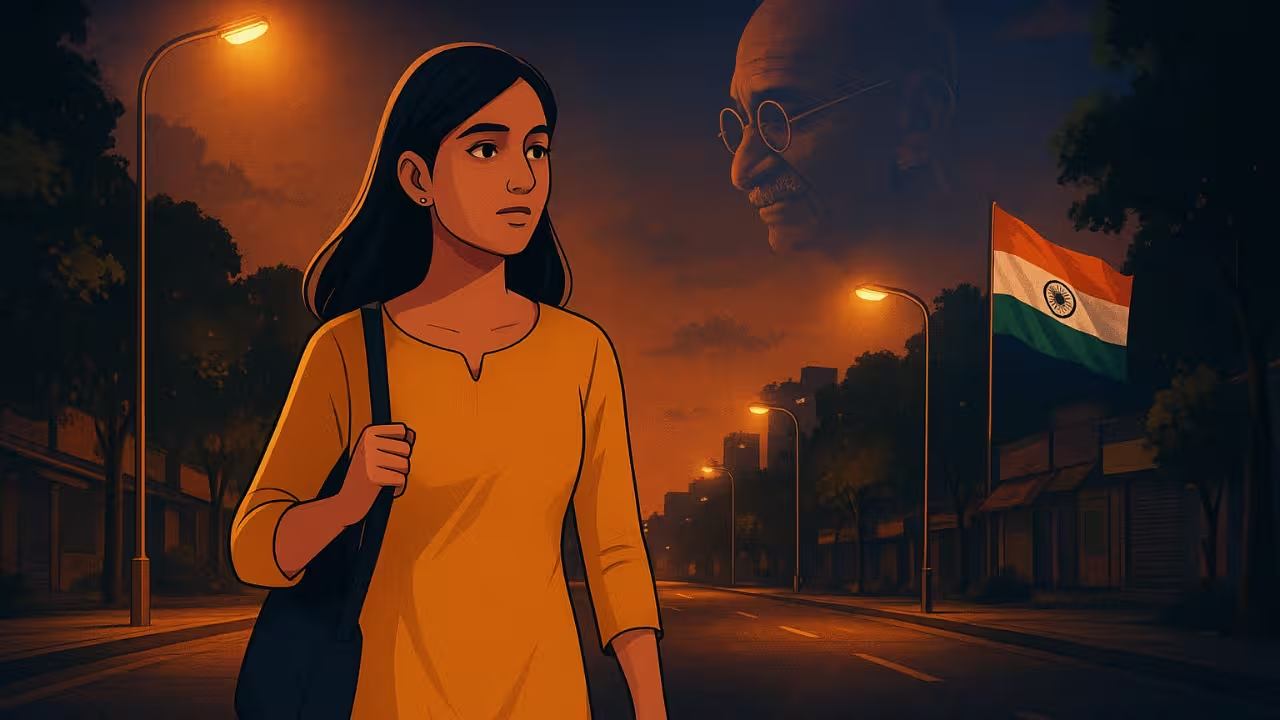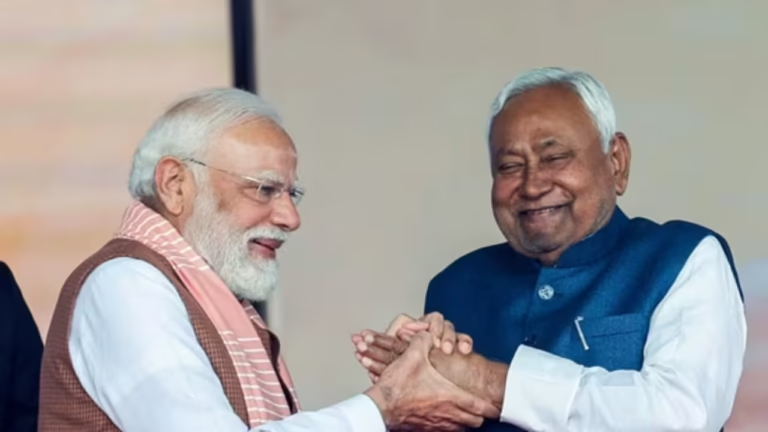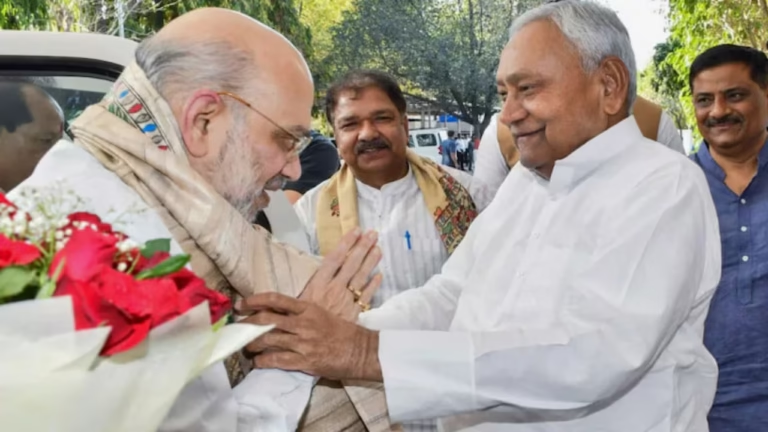
A young woman walks safely through Pune at night — celebrating freedom, independence, and empowerment.
Published on: August 15, 2025 at 17:37
Every Independence Day, we celebrate freedom from colonial rule. But as Mahatma Gandhi insightfully said, “The day a woman can walk freely on the roads at night… that day we can say that India has achieved independence.” What he meant then still resonates—and we’re far from fulfilling that promise across India. Let’s explore why.
Gandhi’s Vision of True Independence

Gandhi believed that real freedom must extend into daily life—not just political self-rule, but personal liberty. When women feel safe enough to walk home after midnight, that’s when India truly achieves its independence. I grew up in Pune, where evening streets are often dimly lit. I’ve seen friends hesitate, heart quickly pounding, just to cross the road. That everyday fear reminds me Gandhi’s vision remains unfulfilled.
Also Read: 79th Independence Day 2025: How India’s Freedom Fighters Paved the Path to A ‘Naya Bharat’
Where India Really Stands: Progress and Roadblocks
Statistics show that in 2024, over 60% of women in urban India reported feeling unsafe walking alone at night (source: National Women Safety Survey). While metro cities like Delhi and Mumbai have started upgrading street lighting and introducing women-only cabs, smaller towns often lag behind. In Pune, improvements in public lighting are noticeable in central areas, but many peripheral neighborhoods remain unsafe. Bridging this gap is essential—not just for women’s confidence but for true independence.
How We Achieve Gandhi’s Ideal: Steps Toward Night-Time Freedom

-
Better Infrastructure: Well-lit streets, reliable public transport operating late, and functional CCTV systems.
-
Community & Civic Action: Neighborhood groups organizing volunteer night patrols, local NGOs running safe-night-walk programs.
-
Policy & Legal Reforms: Faster filing and resolution of harassment cases, ensuring women feel heard and protected.
-
Cultural Change: Hosting “walk safely” public campaigns, offering self-defense workshops for young women.
Imagine a Pune where every street is bright, buses run till late, and women don’t have to check over their shoulder before stepping out—that’s real independence.
“I still remember the night my sister and her friend were returning from a late coaching class in Pune. They had to take a shortcut through poorly lit streets, constantly checking over their shoulders. The fear on their faces stayed with me long after that night. It made me realize how far we still are from Gandhi’s vision of true independence—where women can walk freely and safely at any hour. Experiences like this drive home the point that real freedom isn’t just about flags and speeches; it’s about feeling safe in your own city.”
When women walk freely under the moonlight—unafraid, unhesitant—that’s when Gandhi’s vision blooms. Independence isn’t just a historic milestone; it’s the safety to return home at night without worry. May this Independence Day, we commit to lighting more streets, empowering voices, and creating that safety—for all women across India.






